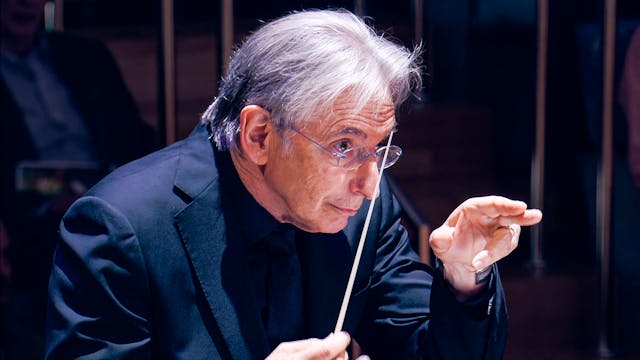Michael Tilson Thomas celebrates one of the greatest composers of the 20th century, his mentor Igor Stravinsky. Step right up for the carnivalesque Petrushka as it delves into a tale of puppets, ballerinas and more with Stravinsky’s signature flair and jaunting rhythms.
After the smash success of The Firebird in 1910, Stravinsky proposed creating another over-the-top score for the Ballets Russes, this one based on prehistoric pagan sacrifice, an idea that would soon become The Rite of Spring. But first, as he later recorded in his autobiography, “I wanted to refresh myself by composing an orchestral piece in which the piano would play the most important part.” The music he conceived brought to mind “a distinct picture of a puppet, suddenly endowed with life, exasperating the patience of the orchestra with diabolical cascades of arpeggi.”
When Serge Diaghilev, the impresario behind the Ballets Russes, visited Stravinsky in Switzerland, he heard those first sketches and, as Stravinsky remembered it, “He was so much pleased with it that he would not leave it alone and began persuading me to develop the theme of the puppet’s sufferings and make it into a whole ballet.” Together they shaped a plot: “The fair, with its crowd, its booths, the little traditional theater, the character of the magician, with all his tricks; and the coming to life of the dolls—Petrushka, his rival and the dancer—and their love tragedy, which ends with Petrushka’s death.”
-- © 2020 Aaron Grad
Originally performed January 25, 2020.
Up Next in Featured Category
-
Beethoven - Overture to Egmont
NWS Alum Chad Goodman leads the Fellows in an explosive performance of Beethoven's ode to revolution, the Overture to Egmont. Enjoy this memorable moment from the opening concert of our 2019-2020 season!
Beethoven longed to be an opera composer, and yet it proved to be the most frustrating aspec...
-
Britten - The Young Person's Guide to...
Enjoy this exceptional performance of Britten's masterwork from the opening concert of our 2018 season. MTT breathes new life into this seminal work with the help of the New World Symphony Fellows.
Benjamin Britten had a precocious start in music, studying piano and viola and composing hundreds ...
-
Fauré - Suite from Pelléas et Mélisande
In his early 50s, Gabriel Fauré finally began to enjoy the recognition at home in France and abroad that had eluded him during his long decades working in obscurity as an organist, choirmaster and piano teacher. He began to teach composition at the Paris Conservatory, and he cultivated patrons in...



1 Comment